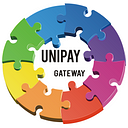PCI Payment Gateway and Payment Security
As payment handling technologies grow more complex, fraudsters manage to find new loopholes to compromise cardholder data. PCI security standard council and other entities are trying to come up with new solutions and recommendations to ensure payment security. As a result, there is a constant need for new, breach-proof credit card fraud protection mechanisms.
A common way to protect your payment system against data breaches is to follow PA-DSS or PCI compliance requirements. PA-DSS is a stronger standard, but it calls for more efforts and is associated with more rigorous certification procedures.
In order to comply with PCI DSS requirements, a business has to go through PCI certification and regular audit. However, many companies prefer to focus on their core products, and delegate cardholder data flow management (and, if necessary, cardholder data storage) to third parties. These include third-party tokenization services and PCI payment gateway providers.
Depending on your processing volumes and numbers of transactions you process on a monthly basis, you are assigned a PCI compliance level, from 4 to 1. For a level 4 merchant PCI audit might simply mean completion of a short self-assessment questionnaire. For a level 1 merchant it might mean $50,000 worth of annual auditing procedures.
PCI compliance steps you can delegate to a PCI payment gateway
Let us briefly outline the PCI compliance components, a company should think about.
- Develop and maintain a secure network; carefully configure firewall to protect payment card data; use secure passwords and other respective parameters in your payment system.
- Use PCI payment gateway; store card data in a secure way; encrypt all cardholder data before it is communicated to your channel partners.
- Analyze vulnerabilities; update anti-virus software in time; use only secure systems and applications.
- Strictly control access and authorizations; limit access of your staff to cardholder data.
- Monitor and regularly test all your communication channels and networks; track access to sensitive data; test system security.
- Enforce strict information security regulations.
Again, if you are a small business, accepting payments for your own products or services, it makes sense to delegate all payment security issues to a PCI payment gateway. However, if you are accepting payments for multiple sub-merchants or other entities, your PCI exposure will increase, and audit procedures will become more complex. In the latter case, you will have much more PCI compliance components to think about.
Concluding remarks
PCI payment gateway partnership is an essential component of your payment system’s security. For small-sized merchants it might mean staying completely out of PCI scope. For larger entities it might mean considerable reduction of their PCI exposure.
Some payment gateway software providers, such as United Thinkers, offer special solutions to enhance the security of payment experience for their clients. United Thinkers’ flagship product, UniPay Gateway, includes UniBroker module, that effectively manages card data flow.
You are welcome to contact us at unipaygateway.com to learn, how our PCI payment gateway technology can improve the security of your payment system, minimize your costs and risks.
